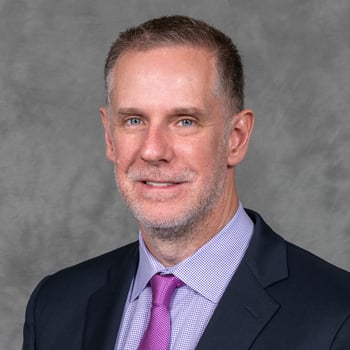JACR Focus Issue Highlights the Economics of Education
Fatima Elahi, DO, MHA, discusses how we can strengthen radiology education during a time of workforce shortages and financial constraints.
Read more
From the Chair of the Commission on Economics

The ACR Commission on Economics is multifaceted. I want to use this month’s column to highlight a little-known group within the commission that is doing important work for the College — the Future Trends Committee (FTC). The late David C. Levin, MD, FACR, professor and chair emeritus of the department of radiology at Thomas Jefferson University, and other ACR luminaries recognized an opportunity to periodically bring together radiology health policy, economics and other thought leaders to take advantage of their collective wisdom. The charge of this auspicious group both was and is to consider issues that could potentially impact the economics of radiology in the future — hence, the name. Howard B. Fleishon, MD, MMM, FACR, was serving as FTC chair when this role was challenged by his emerging leadership on the ACR BOC. At that time, Joshua A. Hirsch, MD, FACR, was asked to lead the FTC, and he continues to serve as chair today. Working with Katie Keysor, ACR senior director of economic policy, and Christina Berry, ACR team lead on economic policy, the committee has grown to include more frequent meetings, a summer session, diversified membership and reports to ACR Commission on Economics leadership.
As chair of the ACR Commission on Economics, I am a de facto member of the FTC. In this month’s column, I will share four examples from the last two years of topics that were discussed by the FTC.
The ACR Commission on Economics works in constant service to radiology. I’m pleased to share this behind-the-scenes look at how one of our key committees is serving College members year-round. The FTC is an essential group challenging the Commission on Economics to consider issues that could potentially affect the economics of radiology in the future. I am always impressed by the enthusiasm and knowledge this committee brings to any topic being discussed. Any committee is only as good as its chair, staff and members. In this case, the committee chair happens to be one of the most effective and capable leaders I have met in my career. I would like to extend my deepest gratitude to Dr. Joshua Hirsch, the FTC Committee members and ACR staff.
JACR Focus Issue Highlights the Economics of Education
Fatima Elahi, DO, MHA, discusses how we can strengthen radiology education during a time of workforce shortages and financial constraints.
Read more
The Radiologist Shortage: A Workforce Update from HPI
Changes in the practice landscape that have grown out of necessity with economic and regulatory pressures are creating a difficult environment for radiologists to thrive in.
Read more
The Essential Role of the ACR Commission on Economics in the RUC
Radiology’s future depends on strong, informed and active representation in the AMA’s Specialty Society Relative Value Scale Update Committee process.
Read more